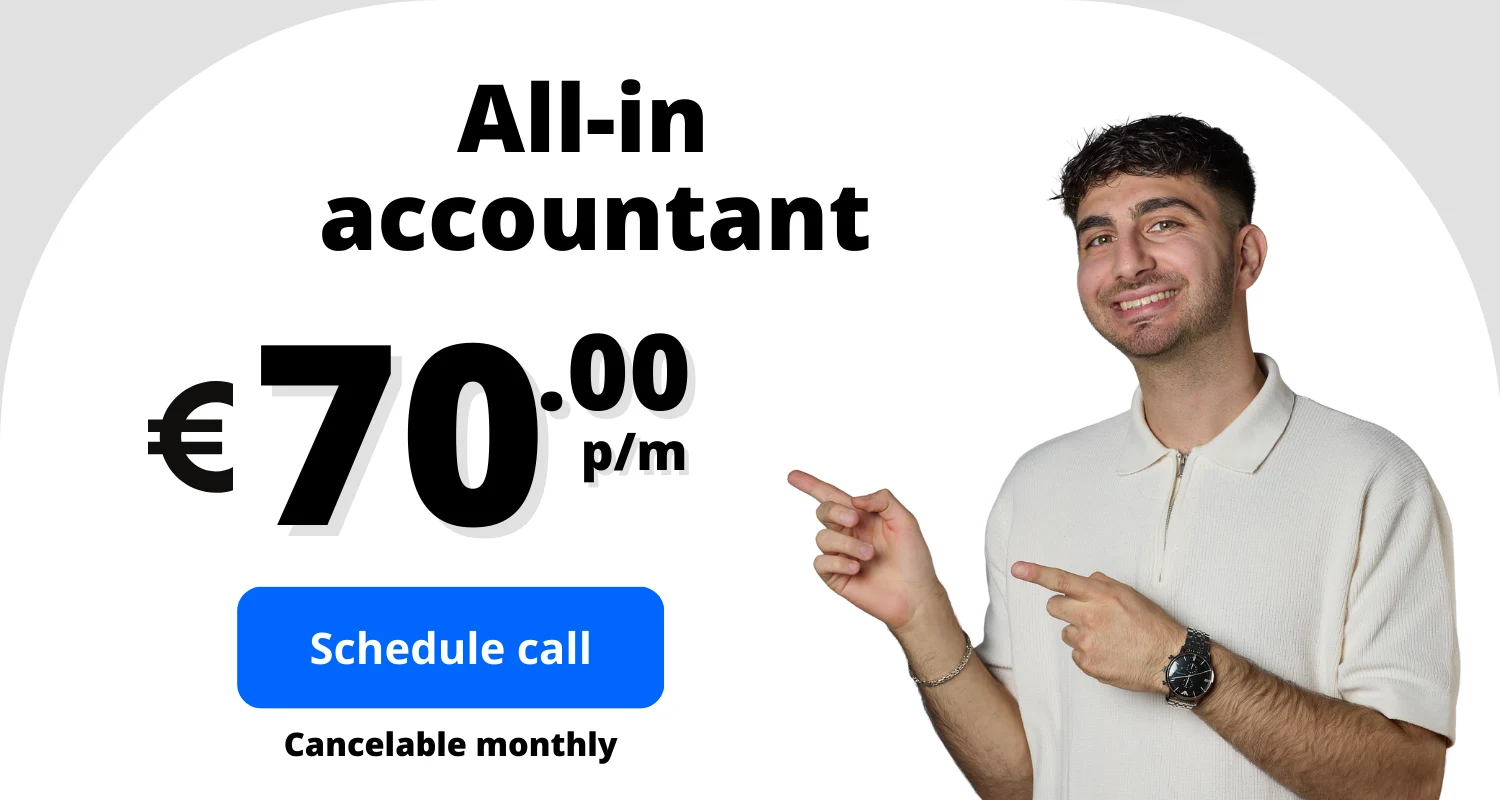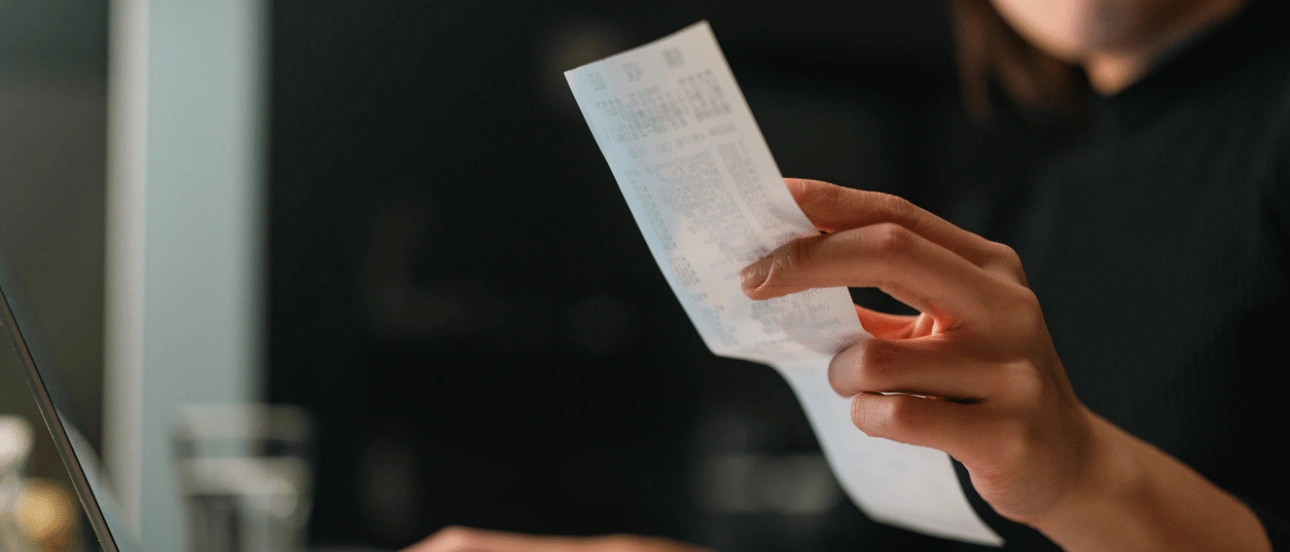What is a VAT exemption?
With VAT exemption, you do not have to charge VAT on the services or products you provide. However, you do not automatically qualify for VAT exemption. You are only VAT-exempt if the tax authorities designate you as an exempt entrepreneur, for example because you only provide services or products that are on the official exemption list.
It is also possible that you still have exempt services or products and the tax authorities still impose a VAT liability. In that case, you will still have to file and therefore often have to submit 0. This may be because the Tax Authorities may expect you to have non-VAT-exempt services or products after all, on other grounds. Should you nevertheless always provide VAT-exempt services or products, you can apply to the Tax Authorities for VAT exemption.
VAT obligation
If you are liable for VAT, then you charge VAT and must VAT return do. You then offset the VAT you receive against the VAT you paid on business expenses.
VAT rates explained
The Netherlands has three VAT rates:
- 21% standard rate
- 9% for certain goods and services, such as food and books
- 0% on international delivery of goods
The zero rate is different from an exemption. You do not charge VAT, but you can reclaim VAT on expenses. With an exemption, you cannot.
Exempt industries and business activities
VAT exemption applies to certain industries and activities. These include:
- investment gold
- collective advocacy
- composers, writers, cartoonists and journalists
- financial services and insurance
- fundraising activities
- healthcare
- youth and youth work
- games of chance
- canteens
- childcare
- delivery of movable operating assets
- lectures, excursions and guided tours
- education
- immovable assets
- postal services
- radio and television
- joint ventures (umbrella exemption)
- socio-cultural institutions
- sports organisations and sports clubs
- funeral directors
These exemptions often have additional conditions per industry. It is therefore important to know which category your service falls under.
VAT exemption in education
Education is exempt from VAT. This applies to primary education, secondary education and higher education, but also to self-employed people who teach, provide training or coaching that falls under education. However, there must be actual education and interaction between you and the course participants. Not all training courses automatically fall under education. Homework assistance or commercial courses can be VAT-taxed.
VAT exemption in healthcare
Many healthcare services are exempt from VAT. These include medical treatments, care consultations, psychological care, physiotherapy and nursing support. You are exempt if your services are aimed at the health of people and if your professional qualifications meet the requirements for this. Cosmetic treatments without medical necessity are usually not covered by this exemption.
Apply for VAT exemption
If you are liable for VAT but only provide exempt services, you can ask the tax authorities to apply an exemption. You then no longer have to submit VAT returns. You apply in writing to the Tax and Customs Administration. As soon as the exemption is granted, you no longer have any administrative VAT obligations. If you later start providing VAT-taxed services, you will have to report this again.
VAT exempt and small business scheme (KOR)
The KOR is a voluntary scheme for entrepreneurs with up to EUR 20,000 turnover per year and is separate from the VAT exemption for certain professions. Even if you provide exempt services, you can therefore simply participate in the KOR. If you participate, you no longer charge VAT and do not file a VAT return. You can then also no longer reclaim VAT. You register with the tax authorities. This scheme is particularly useful for entrepreneurs with low costs or a small turnover.
Terms
To make use of the KOR, you must meet three conditions:
- You are a VAT entrepreneur
- Your company is based in the Netherlands
- Your turnover remains below EUR 20,000 per calendar year
VAT exemption in international trade
International trade affects VAT. Even if you are exempt, you need to consider rules around buying and selling outside the Netherlands.
If you sell goods within the EU to a VAT trader, then 0% VAT usually applies. If you export goods outside the EU, then 0% VAT often also applies. Purchasing goods outside the EU results in import VAT. You have to pay this, but cannot deduct it as an exempt entrepreneur.
VAT reclaim (input tax)
If you do only exempt activities, you may not charge VAT on business expenses reclaim. Your expenses are then always inclusive of VAT. If you have both exempt and VAT-taxed turnover, you may deduct part of the VAT according to an apportionment key. This is called pro rata. Only the part that belongs to your taxed turnover may be reclaimed.
How do you put VAT exemption on your invoice?
Billing works differently when you are exempt.
- You do not mention VAT on the invoice
- You may not use 0% tariff, but note that the service is exempted
- You state that the freedom applies, e.g. “VAT-exempt on the basis of Section 11 of the OB Act”
- You may omit your VAT number
The rest of the invoice lines remain the same.






